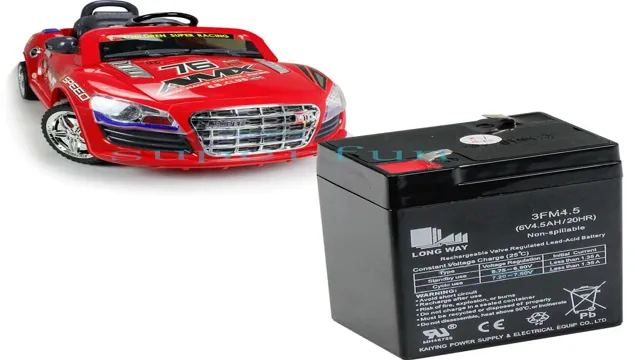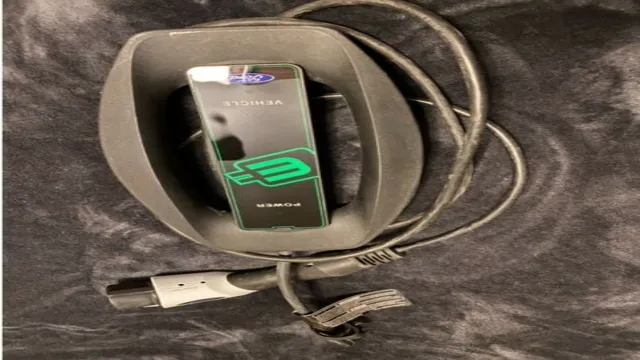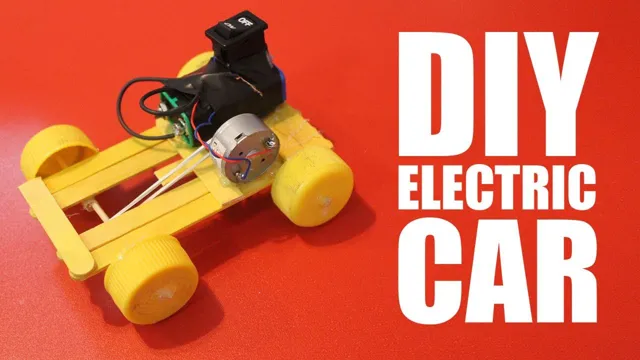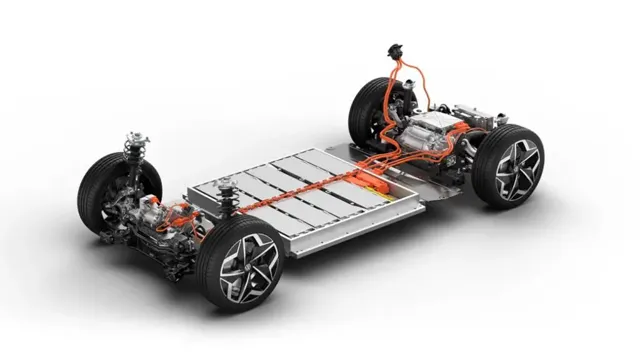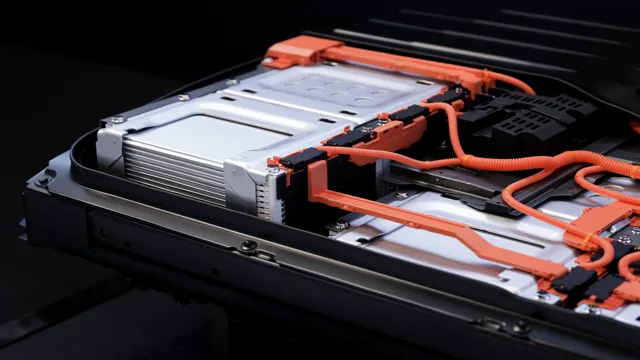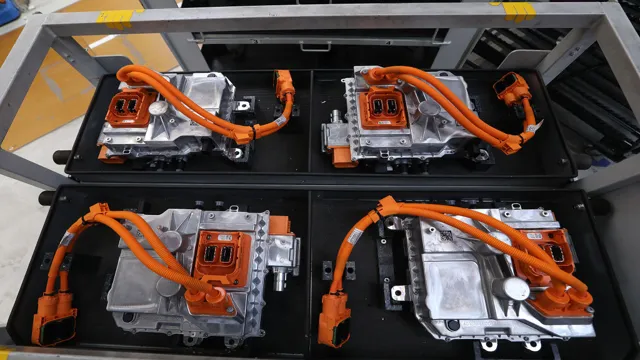Power Up Your Child’s Ride: A Guide to the Best Batteries for Kids’ Electric Cars
When it comes to shopping for batteries, it’s easy to get confused by the variety of types available on the market. From alkaline to lithium-ion, each battery has its own set of advantages and disadvantages. That’s why it’s important to know the basics of batteries before hitting the store shelves.
By understanding the differences between batteries, you can make better-informed choices and avoid purchasing a battery that might not suit your needs. In this blog post, we’ll dive deeper into the factors that you should consider before making a battery purchase. Are you ready to learn more about batteries and how they work? Let’s get started!
Types of Batteries for Kid’s Cars
When it comes to choosing batteries for kids’ electric cars, there are a few options available. The most common types of batteries are lead-acid batteries, which are durable and affordable. These batteries are ideal for young children who only drive their cars for short distances.
For older children who enjoy longer joyrides, lithium-ion batteries are a great choice. These batteries are lightweight and can last up to twice as long as lead-acid batteries, making them perfect for kids who love to cruise around the neighborhood. Another option is nickel-metal hydride batteries, which are also lightweight and provide excellent performance.
While these batteries are more expensive than lead-acid batteries, they are still a great choice for kids’ electric cars. No matter which type of battery you choose, be sure to follow the manufacturer’s instructions to ensure that your child’s car runs safely and smoothly.
Lead-Acid Batteries
Lead-Acid Batteries When it comes to powering kid’s cars, there are two main types of batteries to choose from: lead-acid batteries and lithium-ion batteries. Lead-acid batteries have been around for over 150 years and have long been the standard for powering vehicles. These batteries work by converting electrical energy into chemical energy, which is stored in lead plates submerged in an electrolyte solution of sulfuric acid and water.
While they are heavier and have a shorter lifespan than lithium-ion batteries, lead-acid batteries tend to be more affordable and offer a reliable option for powering kid’s cars. They also have the advantage of being easy to maintain and not requiring any special charging equipment. However, you will need to make sure to handle them carefully, as they contain corrosive materials that can be hazardous if not properly disposed of.
Overall, lead-acid batteries can be a great choice for kid’s cars if you’re looking for a cost-effective and dependable power source.
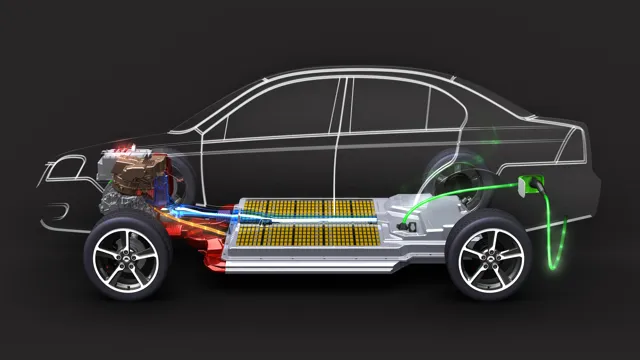
Lithium-Ion Batteries
As parents, we all want our kids to have the best experiences possible, and that includes having the perfect ride-on car. However, when it comes to choosing the right battery for your child’s ride-on car, you may feel overwhelmed by all the options. One of the most popular types of batteries for kids’ cars is Lithium-Ion batteries.
These batteries are known for their high energy density, long lifespan, and low self-discharge rate. This means that your child can enjoy longer rides without worrying about running out of battery power. Plus, Lithium-Ion batteries are much lighter than other battery types, making them safer for your child to use.
When properly maintained, these batteries can last for years, giving your child endless hours of fun and enjoyment. So, if you’re looking for a reliable and long-lasting battery for your child’s ride-on car, Lithium-Ion batteries are an excellent choice.
Factors to Consider When Choosing a Battery
When it comes to choosing a battery for your child’s electric car, there are a few important factors to consider. First and foremost, you want to make sure that the battery is the right size and voltage for your specific car model. It’s also important to look at the battery’s capacity and how long it will last on a single charge.
Another consideration is the weight of the battery, as a heavier battery can impact the car’s speed and performance. Additionally, you’ll want to look at the type of battery technology being used, such as lead-acid or lithium-ion. Finally, consider the brand and reputation of the battery manufacturer, as well as any warranty or customer support options that may be available.
By taking all of these factors into account, you can find the right battery to keep your child’s electric car running smoothly and safely. And for those searching for batteries for kids electric cars, be sure to look for ones that are specifically designed for this purpose to ensure compatibility and optimal performance.
Battery Life and Capacity
When it comes to choosing a battery, it’s essential to consider its capacity and life. Battery capacity indicates the amount of charge it can hold, while battery life refers to how long it can provide power before needing a recharge. Different factors influence both, including the battery chemistry, temperature, and usage patterns.
For instance, Lithium-Ion batteries offer high capacity and long life. However, exposing them to high temperatures can reduce their performance and lifespan. On the other hand, Nickel-Cadmium batteries are more resistant to temperature fluctuations, but they have a lower capacity and memory effect.
Additionally, how you use your batteries impacts their capacity and life, so it’s essential to avoid overcharging, deep discharging, and leaving them unused for long periods. By taking these factors into account, you can select a battery that suits your needs, whether it’s for your smartphone, laptop, or any other device.
Charging Time and Efficiency
When choosing a battery, one of the factors to consider is the charging time and efficiency. Nobody wants to wait for hours just to charge their device. One of the key factors affecting charging time is the capacity of the battery, i.
e., the higher the capacity, the longer the charging time. Additionally, the charger’s output current rating also plays a crucial role.
The higher the output current, the faster your battery will charge. However, a higher output current can also reduce the battery’s lifespan, so balancing it is essential. Another critical consideration is the charging efficiency, which is the amount of energy received by the battery during charging compared to the amount of energy consumed.
Essentially, the higher the charging efficiency, the less energy is lost in the conversion process. It is crucial to pick a battery with high charging efficiency as it will save you both time and money in the long run.
Safety Features and Durability
When choosing a battery for your device, it’s important to consider safety features and durability. One important safety feature to look for is overcharge protection, which prevents the battery from getting too hot and potentially causing a fire or explosion. You’ll also want to look for a battery that has been tested for durability and can withstand frequent charging and discharging cycles.
Lithium-ion batteries are a popular choice for their high energy density and long lifespan, but it’s important to make sure they are manufactured by a reputable company with a track record of quality. Additionally, you may want to consider the environmental impact of the battery and choose one that is rechargeable rather than disposable. By weighing all of these factors, you can choose a battery that is both safe and reliable for your needs.
Top Picks: Our Favorite Batteries for Kid’s Electric Cars
When it comes to finding the perfect batteries for kids’ electric cars, there are a few top picks that stand out from the rest. One of our favorites is the Mighty Max Battery 12V 12Ah Battery, which is not only affordable but also offers great performance. Another great option is the Universal Power Group 12V 12Ah Battery, which is easy to install and long-lasting.
For those who want even more power, the VMAXTANKS Vmax857 AGM Battery is an excellent choice. Its advanced technology ensures longer discharge times and a longer overall lifespan. And finally, we can’t forget about the Chrome Battery 12V 12Ah Battery, which stands out for its superior durability and ability to withstand extreme weather conditions.
No matter which battery you choose, make sure to prioritize safety and always follow the manufacturer’s instructions for installation and maintenance.
Brand One: High Capacity and Safety Features
When it comes to choosing the right battery for your kid’s electric car, safety features and high capacity should be your top priorities. Brand One offers a range of top-tier batteries that meet these requirements. Our top picks include the 12-volt 12Ah battery and the 24-volt 12Ah battery.
The 12-volt battery is perfect for younger children as it provides a comfortable speed and a run time of up to two hours. The 24-volt battery, on the other hand, is more suited to older children as it gives a faster speed and a longer run time of up to three hours. Both batteries are equipped with safety features such as overload and short circuit protection, ensuring that your child remains safe while enjoying their electric car.
Additionally, these batteries are designed to provide high performance and durability, making them an excellent investment for your child’s electric car. Overall, when it comes to selecting the best battery for your kid’s electric car, Brand One should be your go-to choice for high capacity and exceptional safety features.
Brand Two: Quick Charging and Long Lifespan
Brand Two is a popular choice for parents when it comes to buying batteries for their kids’ electric cars. One of the key reasons is the brand’s reputation for quick charging and long lifespan. Nobody wants to wait around for hours for their battery to charge, and with Brand Two’s quick charging technology, that’s not a concern.
Additionally, the batteries are designed to last longer than those of many other brands, which means less money spent on replacing dead batteries. Our top picks for the best batteries from Brand Two include the 12-volt option for younger kids’ cars and the 24-volt option for older kids’ cars. Both provide reliable power and durability, ensuring that your child can keep cruising along for hours on end without any hiccups.
Overall, Brand Two is an excellent choice for parents seeking quality batteries for their child’s electric ride-on car.
Battery Maintenance Tips for Longevity
Batteries for kids electric cars are important to maintain for optimal performance and longevity. One essential tip to increase battery life is to avoid overcharging. It’s crucial to stop charging the battery once it reaches its full capacity, as overcharging could cause the battery to deteriorate faster.
Another tip is to use the correct charger provided by the manufacturer, as using a lower quality charger could cause damage to the battery. Regularly cleaning the battery terminals with a dry cloth is also important to prevent corrosion, which could affect the battery’s performance. Lastly, storing the battery in a cool and dry place when not in use can prolong its lifespan.
By following these simple battery maintenance tips, you can ensure that your kids’ electric cars run smoothly and efficiently for many years to come.
Conclusion
In conclusion, batteries for kids electric cars are like the fuel tanks of today’s modern vehicles. Just like how cars need gasoline to keep moving, electric cars need batteries to keep racing around. And while they may not be as high-powered as their adult counterparts, kids electric cars are still an exciting way for children to learn the basics of driving and to develop their motor skills.
So, whether your child is a budding race car driver or simply loves to cruise around the neighborhood, batteries for kids electric cars are an essential part of the ride!”
FAQs
What type of batteries are recommended for kids electric cars?
Most kids electric cars require a 12-volt rechargeable battery, but it’s important to check the manufacturer’s recommendations before purchasing a replacement battery.
How long do the batteries typically last in kids electric cars?
The lifespan of the battery will depend on various factors, such as how often the car is used and how well it’s maintained, but they generally last anywhere from 1-3 years.
Can you use regular car batteries for kids electric cars?
No, it’s not recommended to use regular car batteries because they are not designed for the high energy demands of electric ride-on toys.
How can you extend the life of the batteries in kids electric cars?
Some tips for extending the battery life include keeping the battery charged when not in use, avoiding overcharging, and storing the car and battery in a cool, dry place. Additionally, using the car on smooth, flat surfaces can help reduce the strain on the battery.

